The model name Dakar is a nod to the first overall victory by Porsche in the Paris-Dakar rally, which was achieved in 1984 by a purpose-built Porsche 911 that had been fitted with an all-wheel-drive system for the first time.
More than 6,000 miles of off-road testing
In testing the new 911 Dakar, the development engineers around General Project Manager Achim Lamparter used the off-road proving grounds in Weissach extensively – but didn’t stop there. In fact, the development team tested the 911 Dakar around the world under extreme conditions to the tune of more than 300,000 miles, including more than 6,000 miles off-road. The Château de Lastours test track in southern France, for example, was used to test the car’s handling on typical rally courses and fine-tune the suspension. Mile after mile of loose surfaces really put the Porsche 911 Dakar to the test.
“All Dakar teams come here to test their cars in Europe before the rally,” says Porsche works driver Romain Dumas. At first, the Frenchman was surprised by the assignment to drive a new 911 at Château de Lastours, of all places. But the astonishment quickly gave way to admiration for the Dakar’s spirited off-road performance. “I knew what a 911 could do on the road,” says Dumas, “but I was absolutely stunned by how well the car performed here on loose surfaces.”
Walter Röhrl impressed by handling on snow and ice
Two-time world rally champion Walter Röhrl naturally couldn’t resist the opportunity to put the 911 Dakar through its paces at the large testing grounds in Arjeplog, Sweden. The thick ice of the frozen lakes offers Porsche test drivers an ideal basis for an approximately 90 per cent closed compacted snow surface – a more realistic scenario than pure ice.
With the low friction coefficient on the snow, the focus was on traction and steering precision. Even on this type of surface, a Porsche 911 has to provide accurate feedback to the driver. Porsche brand ambassador Röhrl was enthusiastic: “The car is incredibly fun to drive,” he says. “Everything works so precisely and calmly.”
Extensive testing program in the desert
The new 911 Dakar also had to prove itself on fast sand tracks and high dunes. In Dubai and Morocco, test drivers drove the off-road sports car up steep, 160 foot dunes in temperatures of up to 113 degrees Fahrenheit time and time again.
“The 911 Dakar delivered strong performance even in the desert,” says Frank Moser, Vice President Model Line 911/718. “Especially here, the 911 Dakar can make the most of its conceptual advantages – the combination of low weight, higher ground clearance, a powerful rear-mounted engine and the short wheelbase make for an exhilarating driving experience. I was able to experience it myself on test drives in the Sahara.”
Bergmeister and Kern impressed by driving dynamics on all surfaces
Porsche brand ambassador Jörg Bergmeister was also able to test the 911 Dakar as part of the car’s development and was surprised by the driving dynamics of the unusually high-riding sports car on both loose surfaces and asphalt: “I wouldn’t have thought that a vehicle with such ground clearance and all-terrain tires would still feel like a Porsche 911 on asphalt,” he says. Development driver Lars Kern was also impressed during the final drives intended to fine-tune the car: “I am very satisfied with the handling on loose surfaces. Even the ABS has been optimized for braking on gravel. It’s amazing how much traction the all-terrain tires deliver. The car is a blast to drive.”
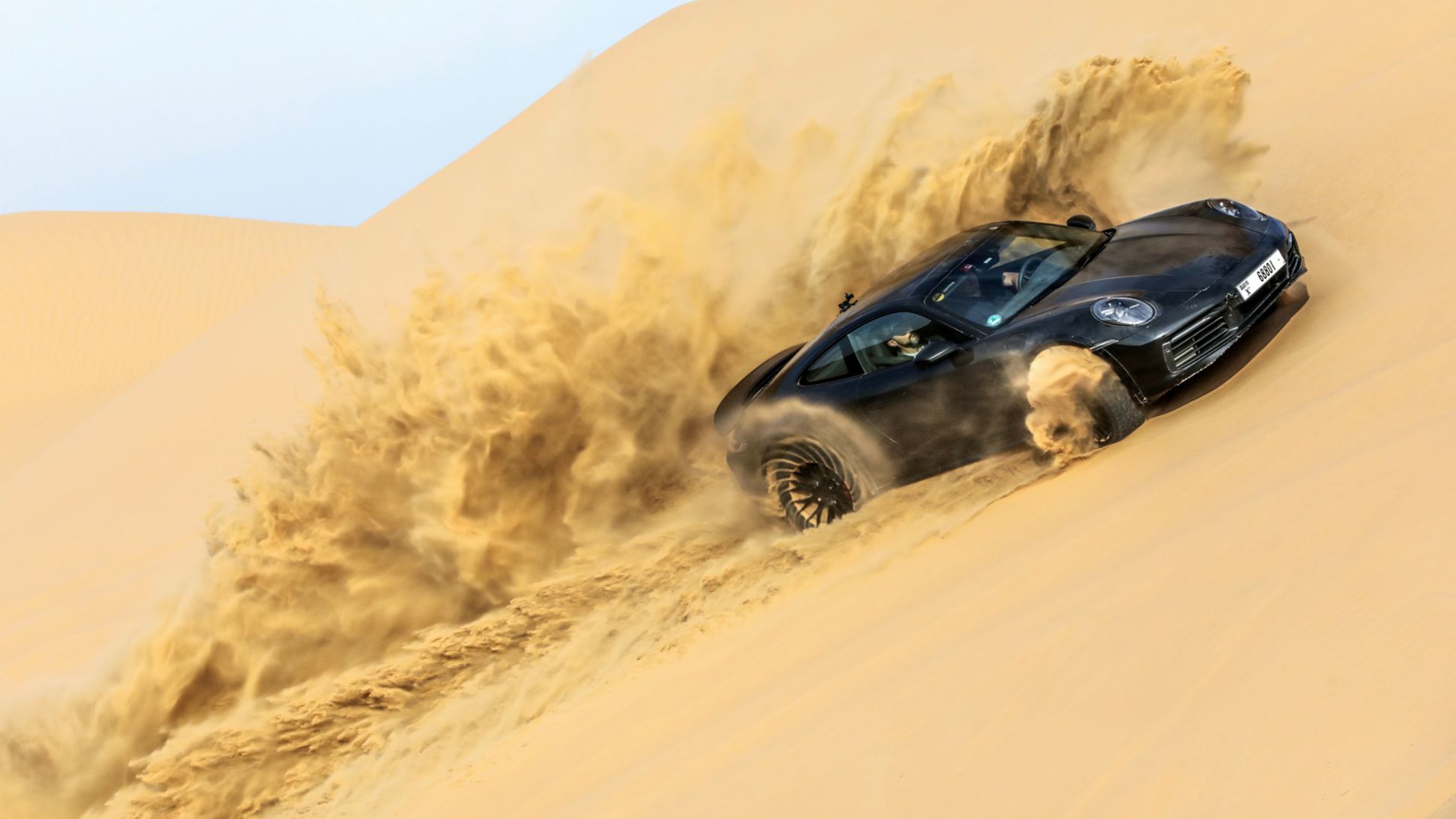
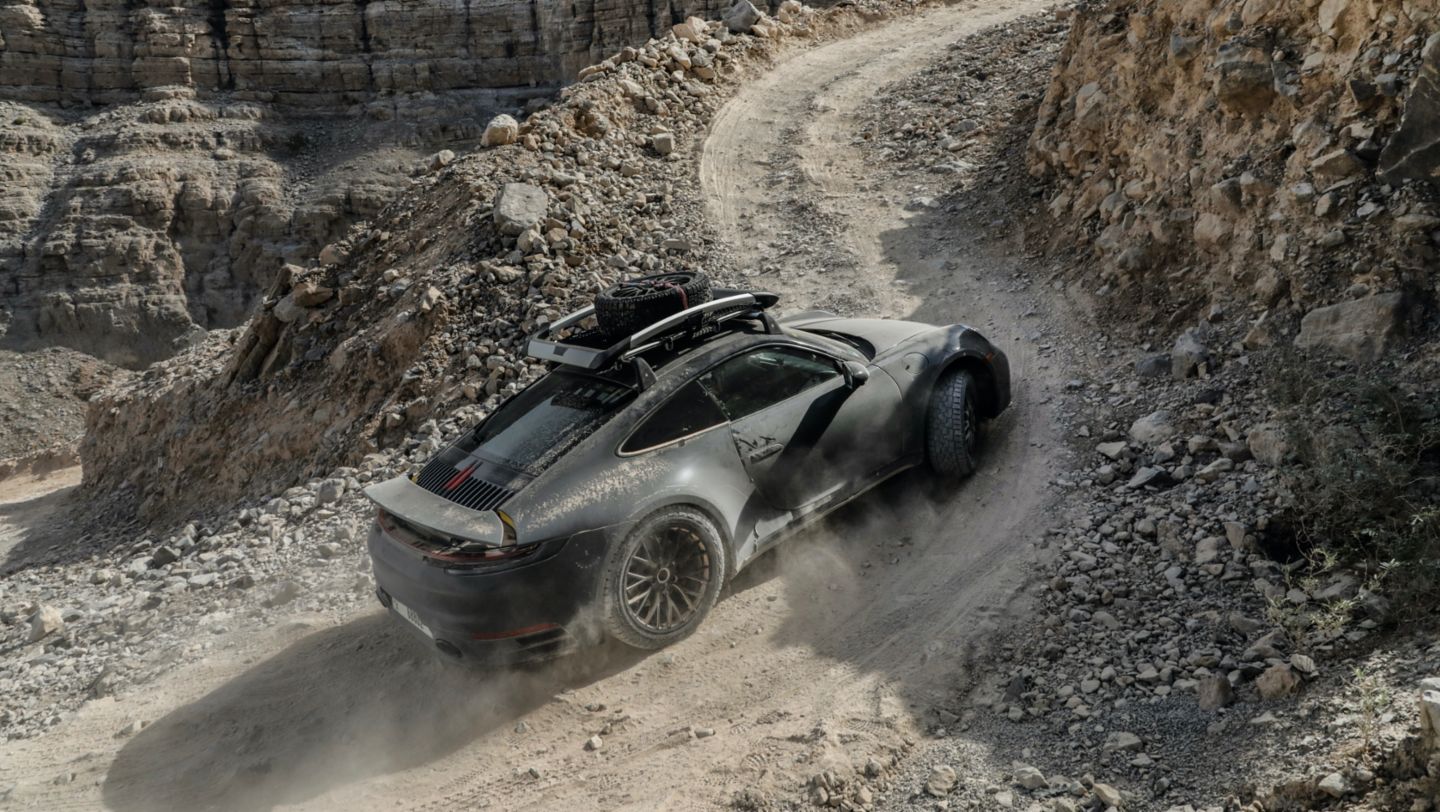
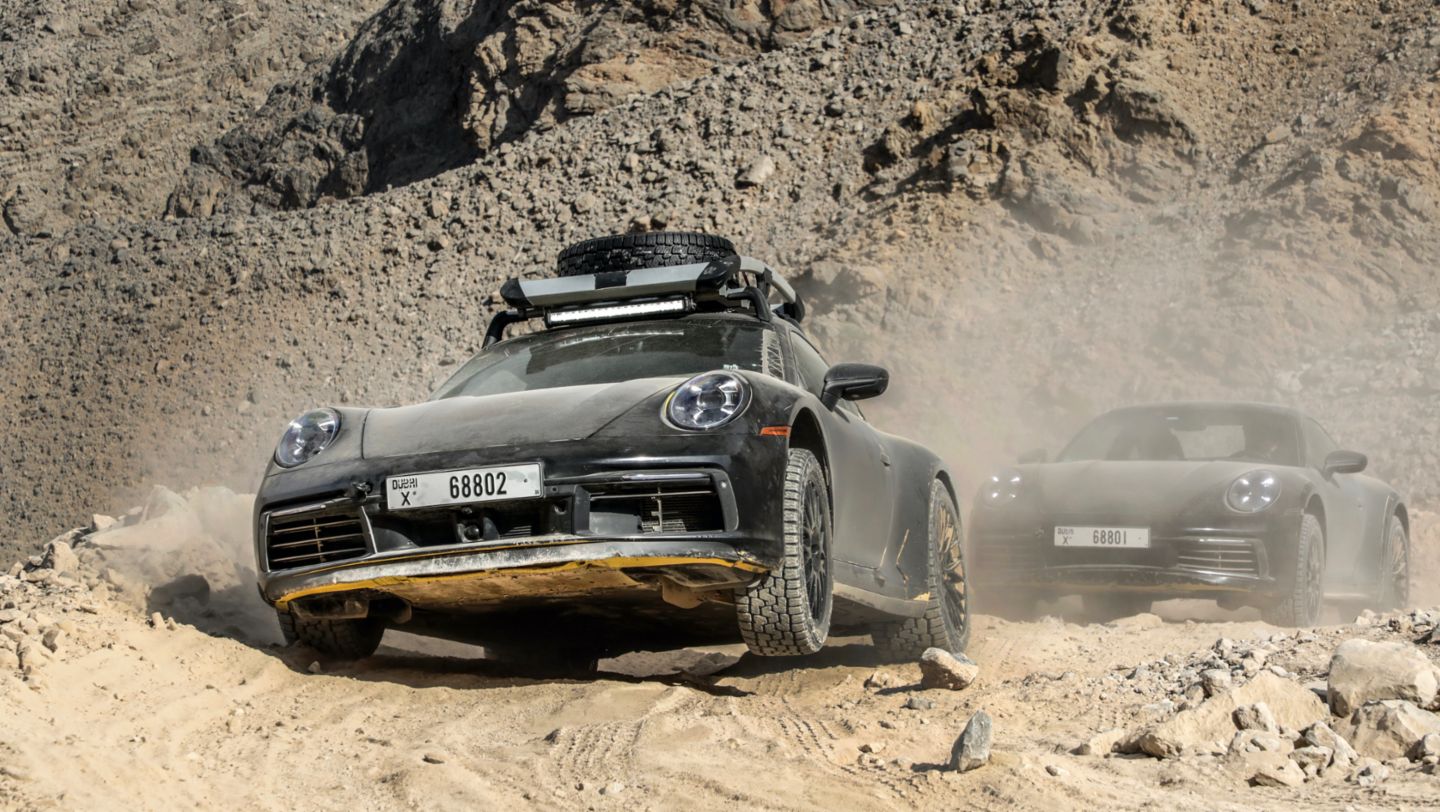
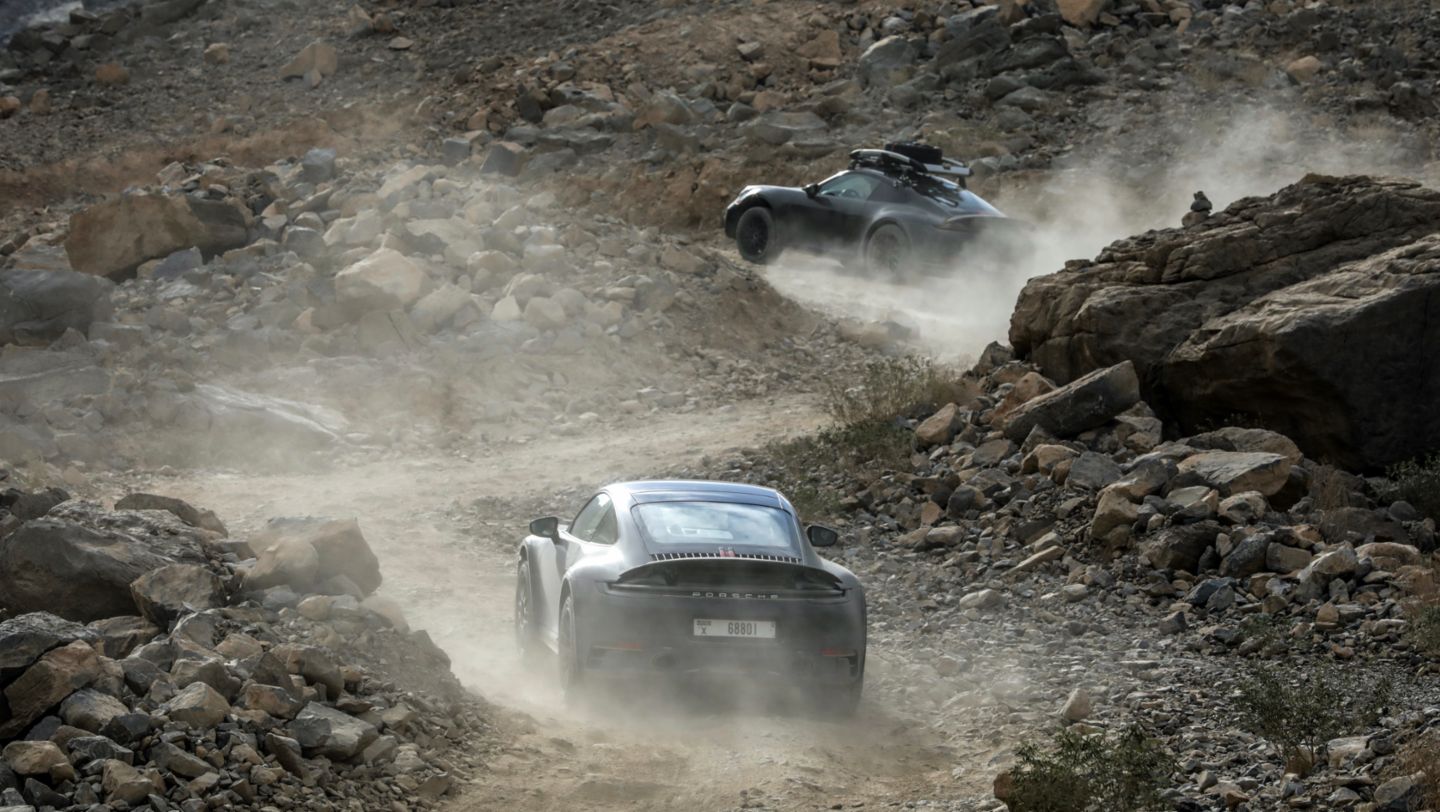
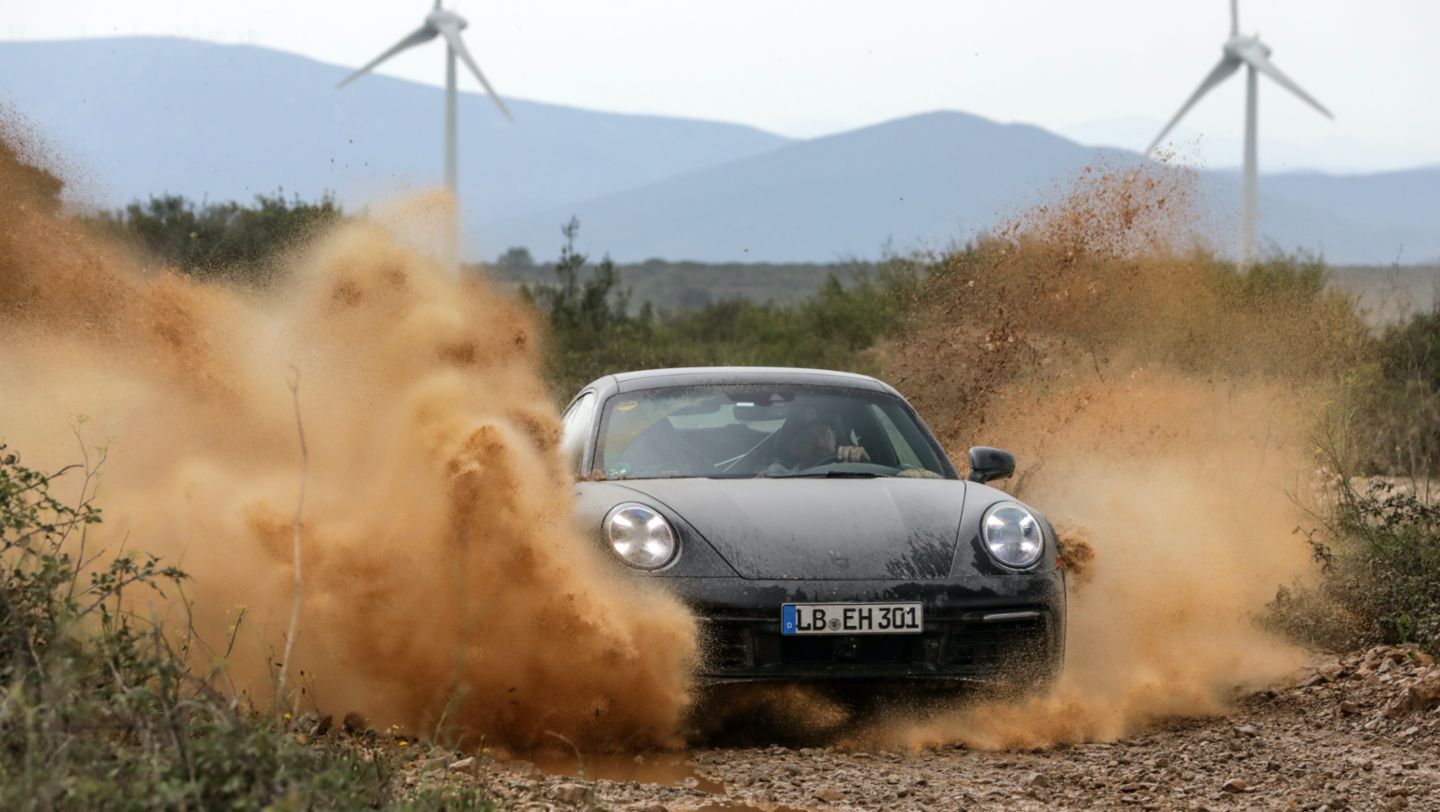
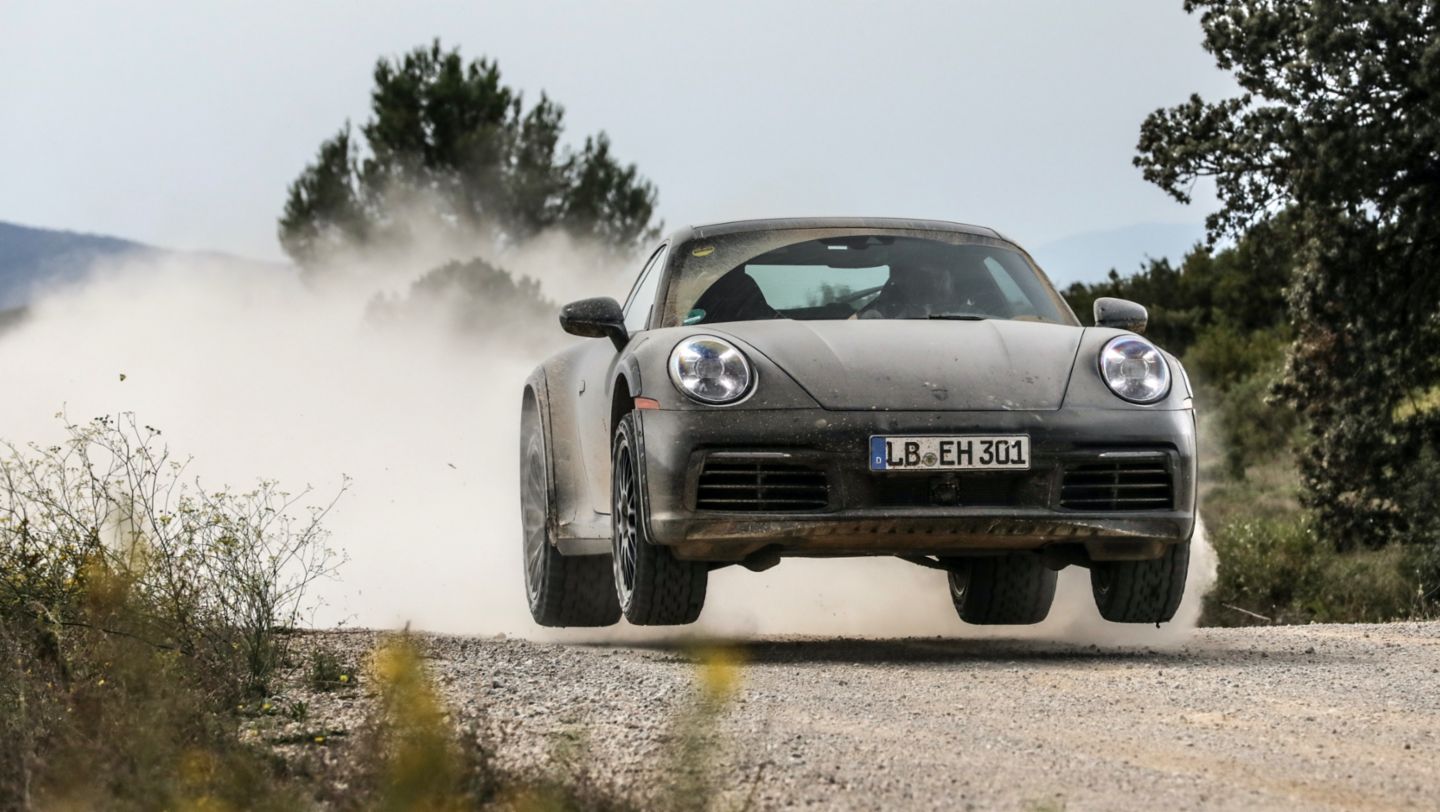
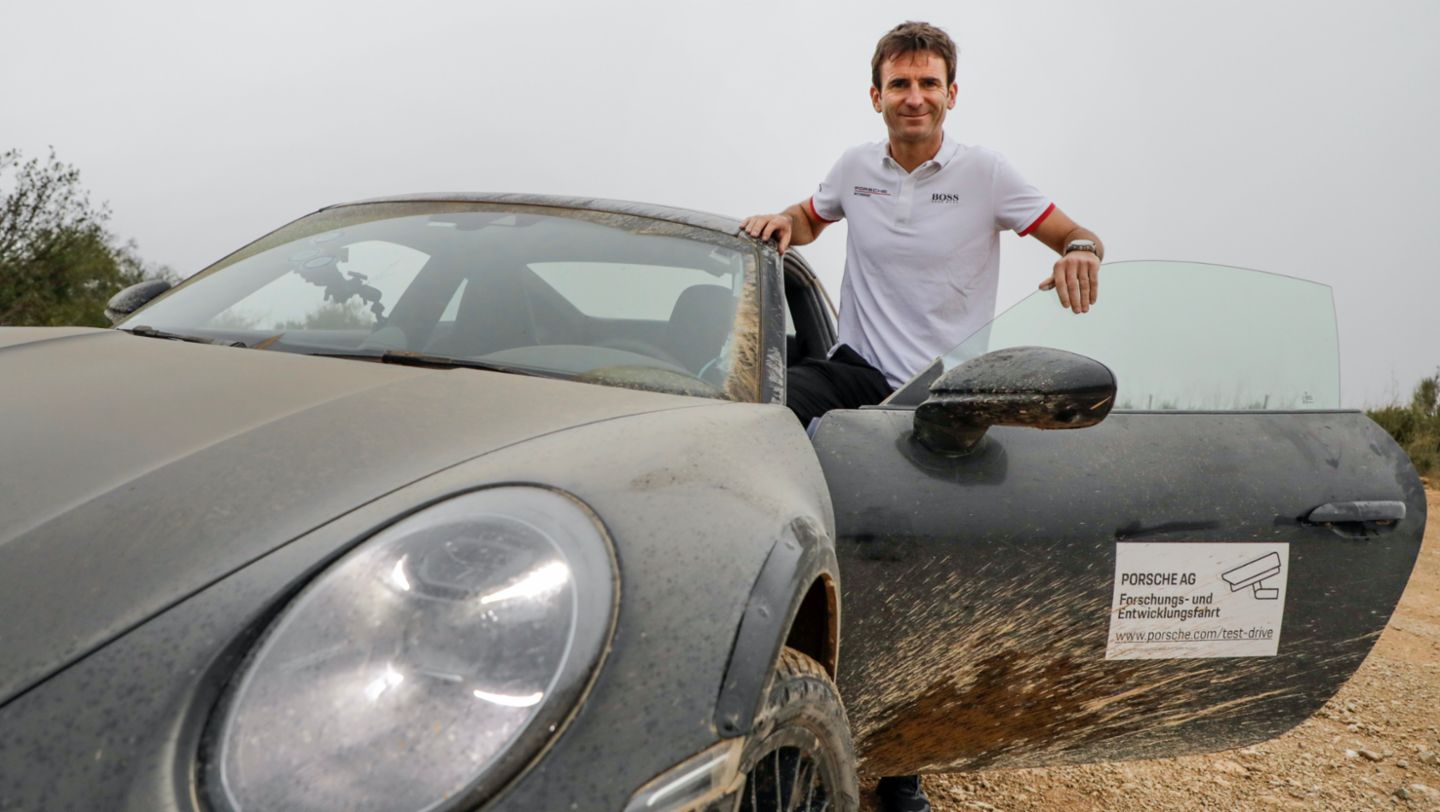
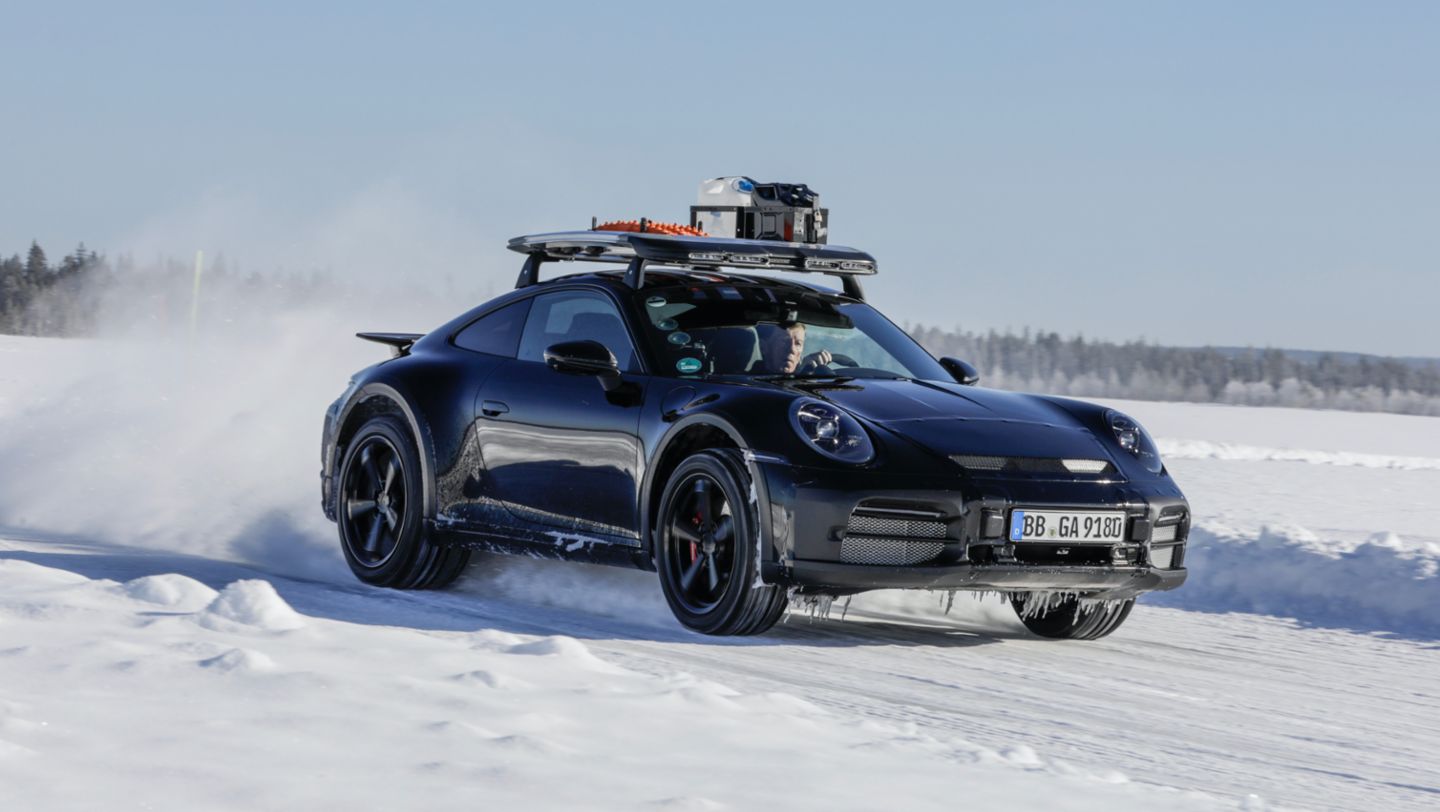
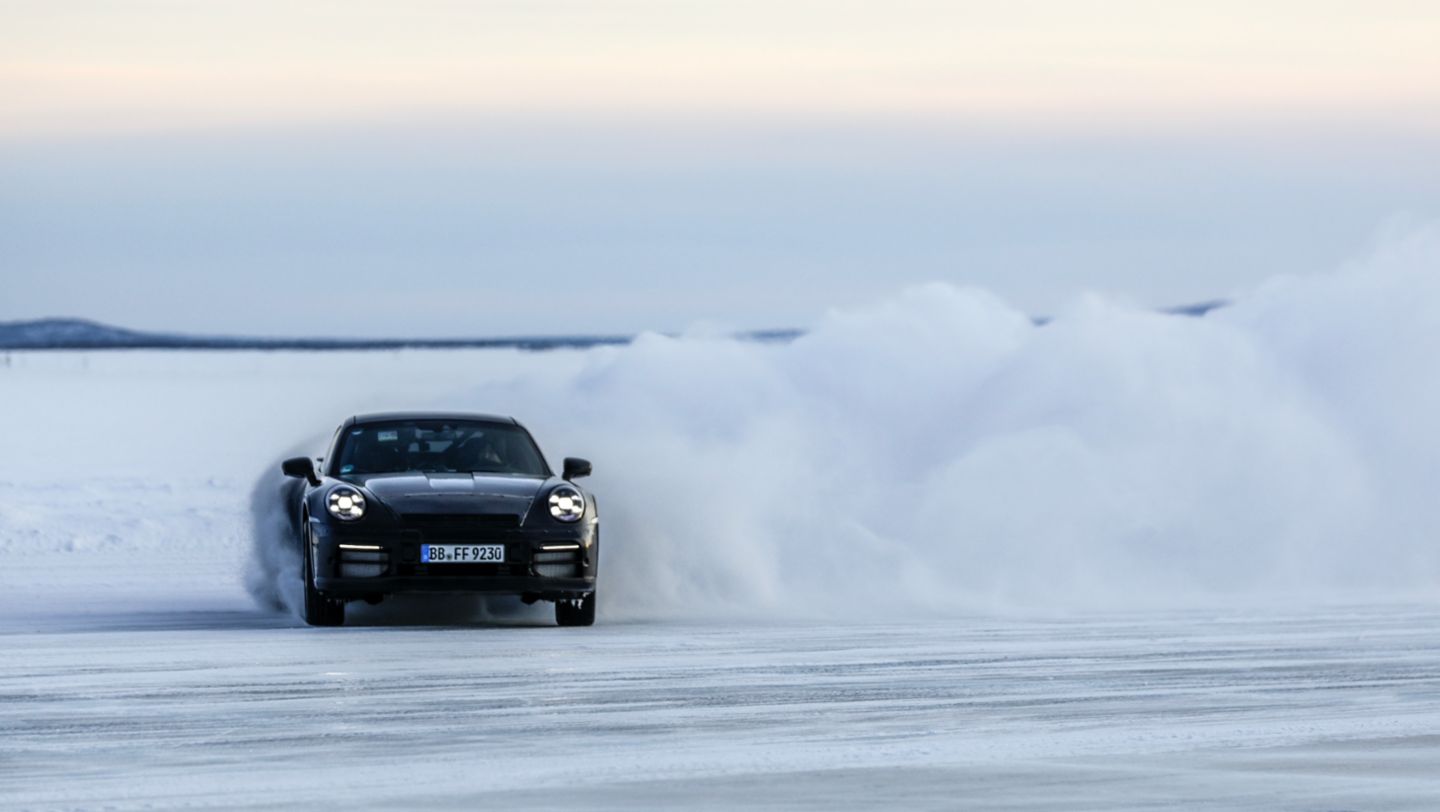
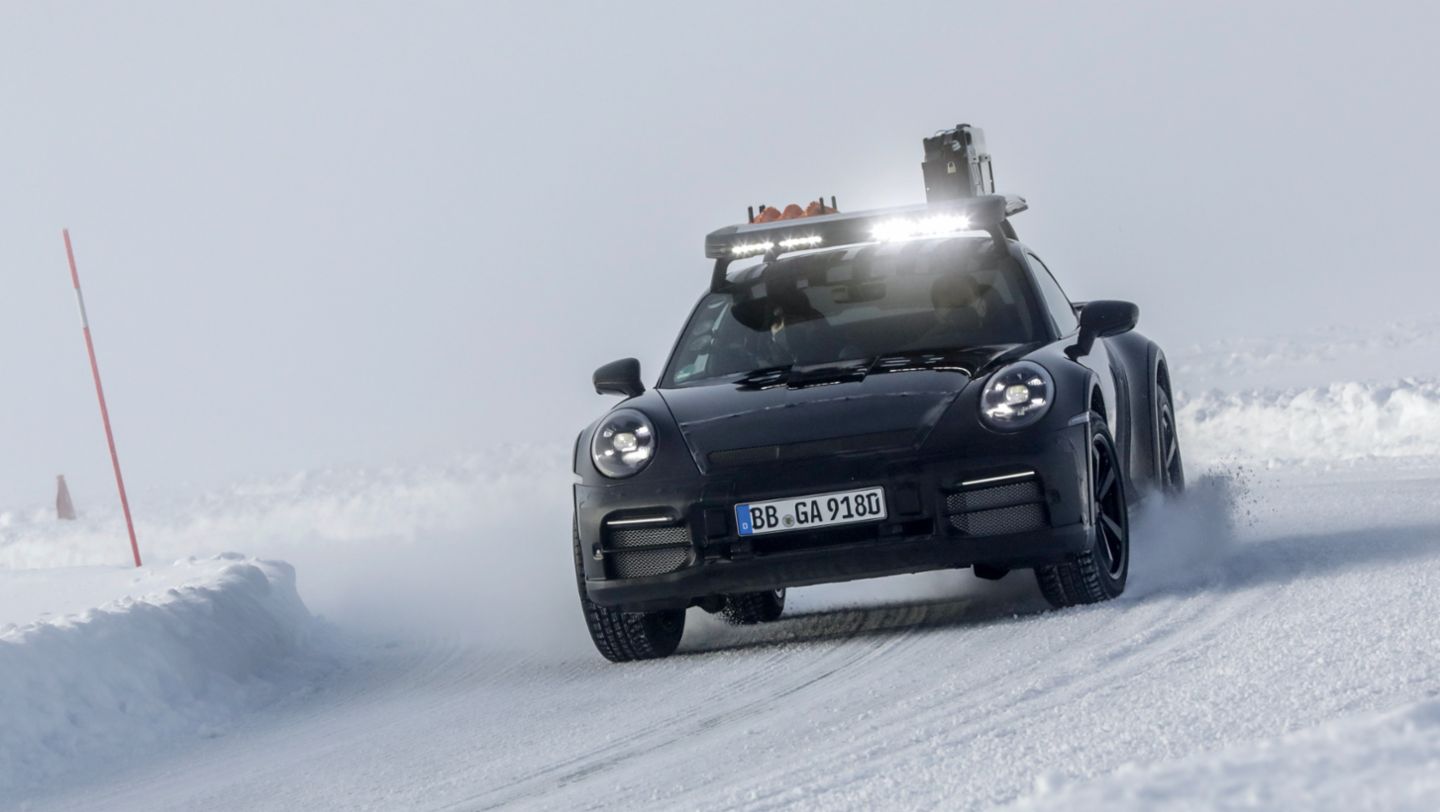
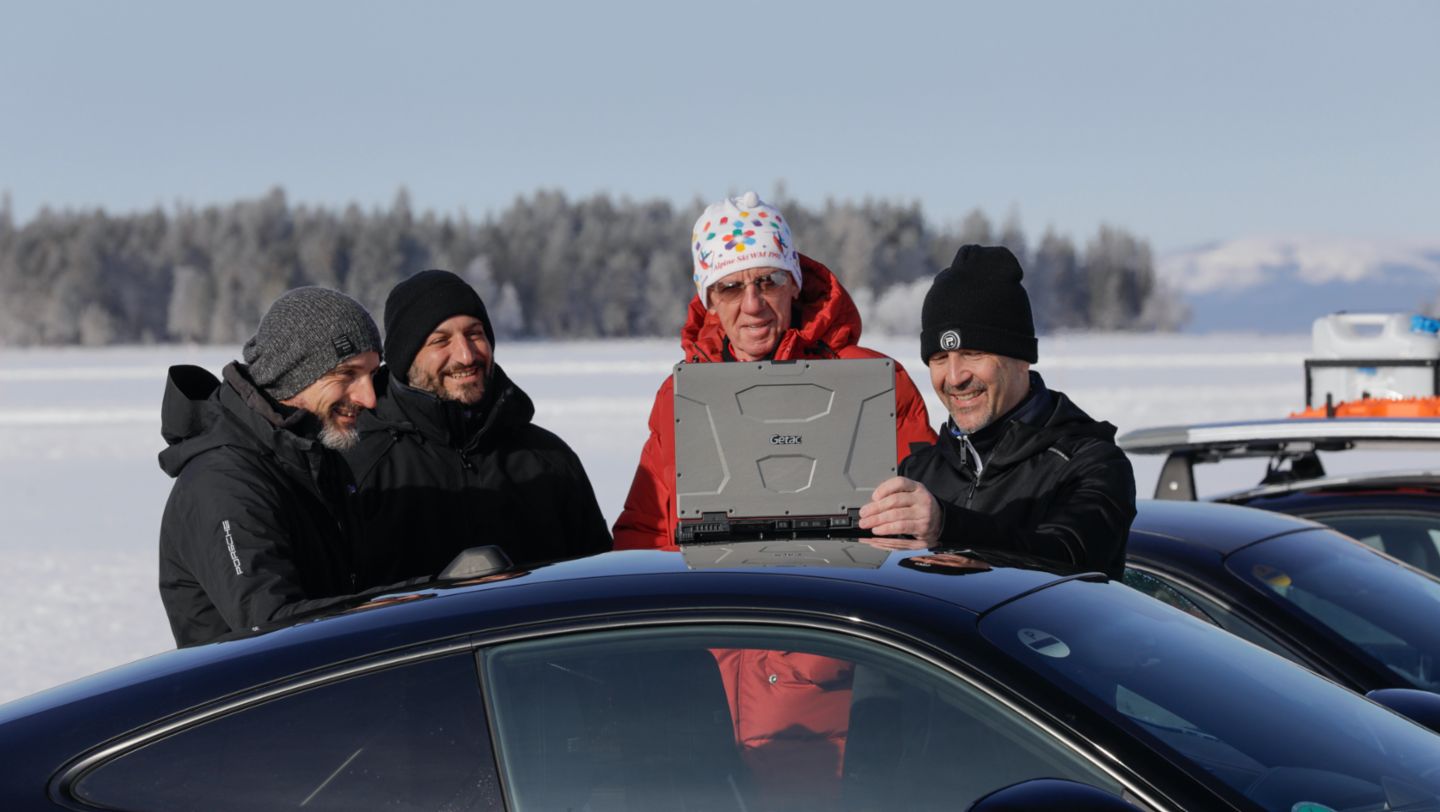
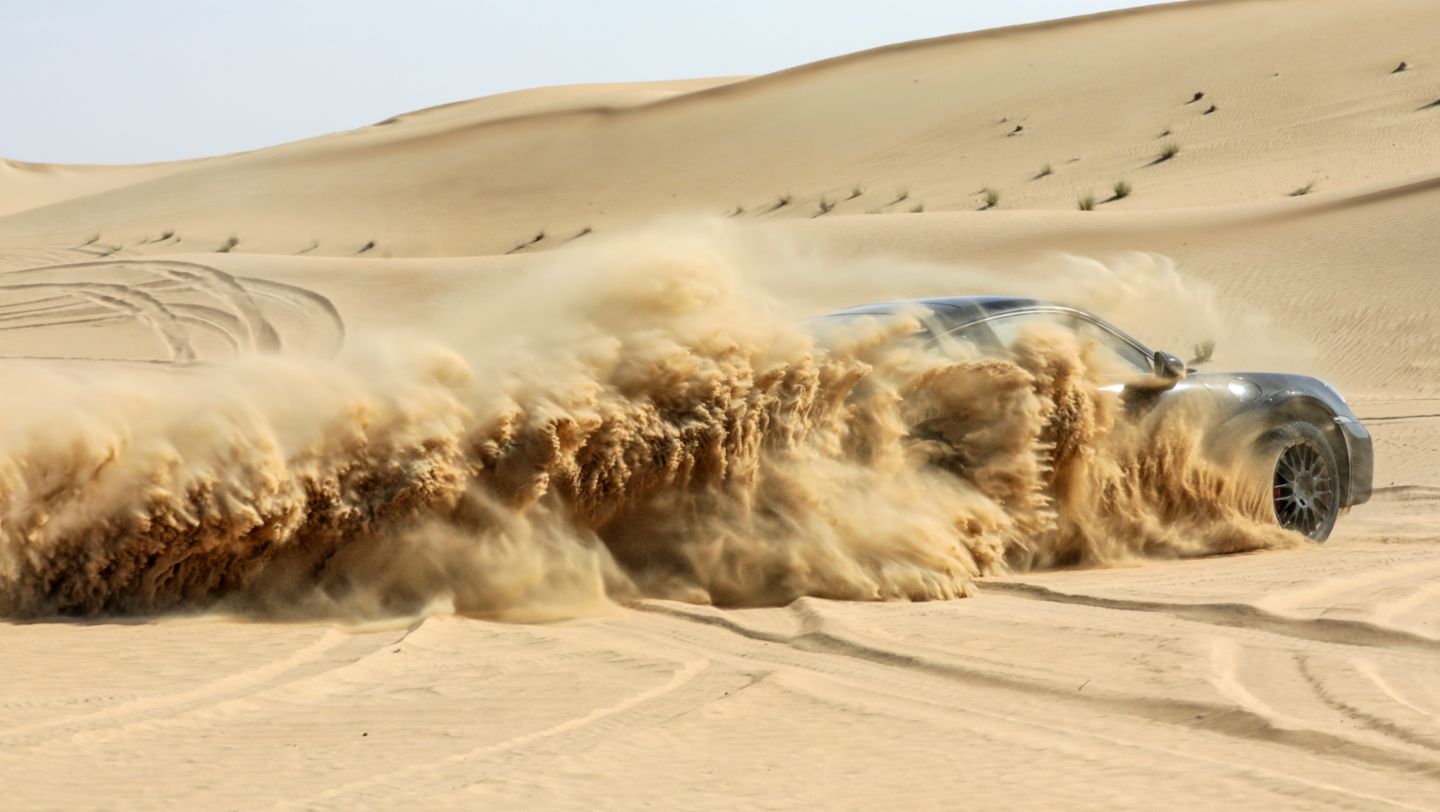
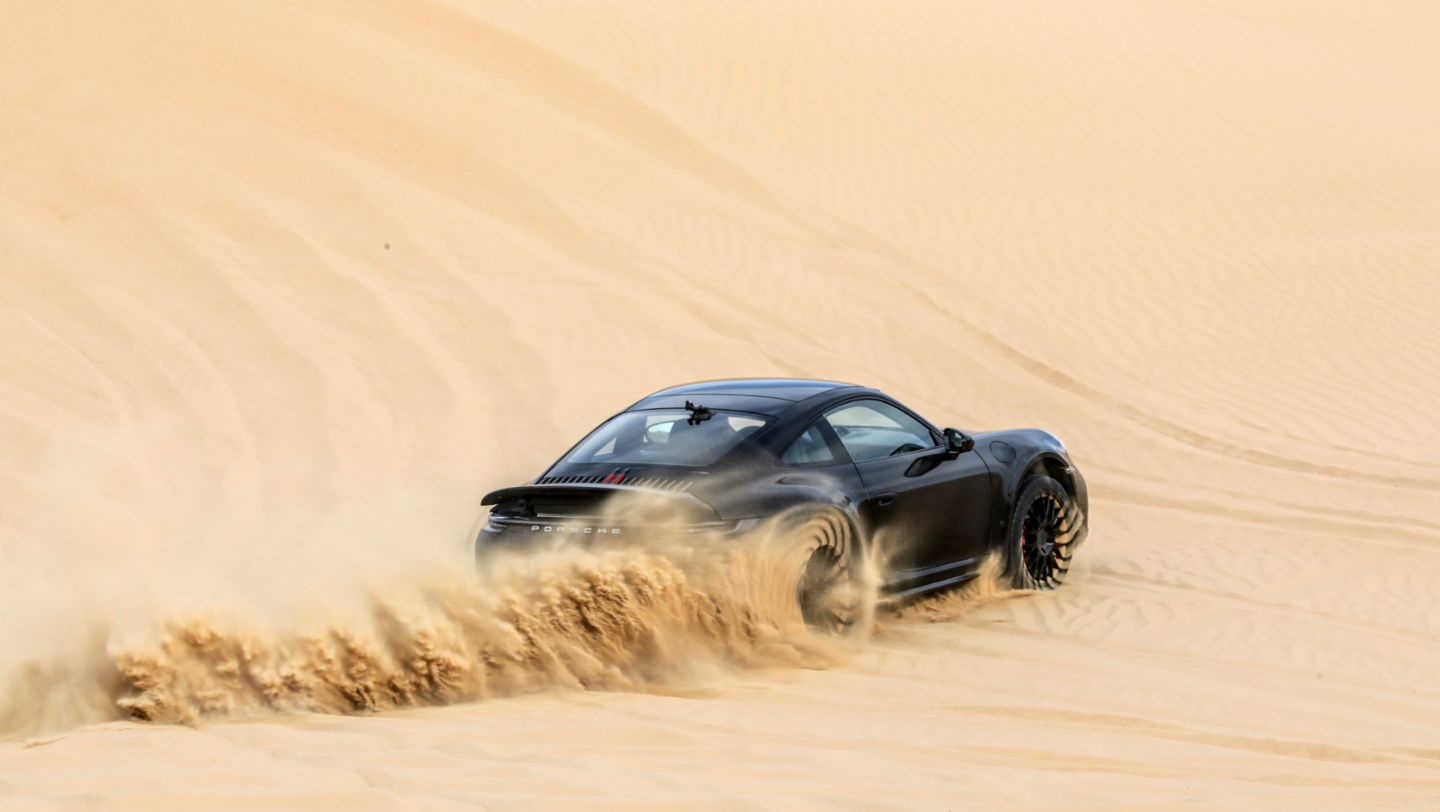



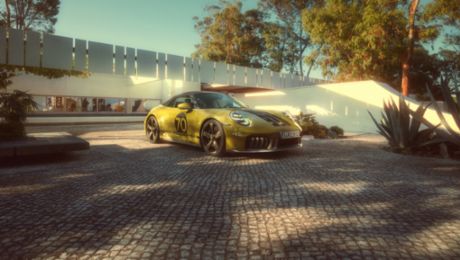
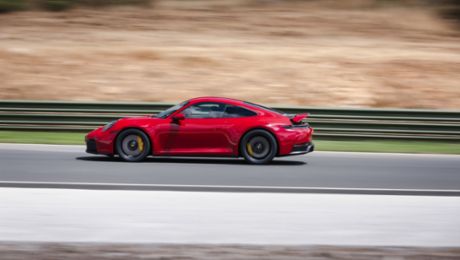
.jpg/jcr:content/286775_6000x3164%20(1).jpg)